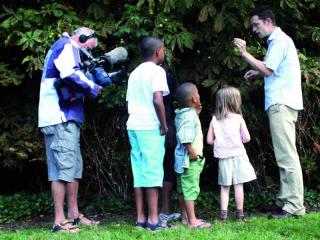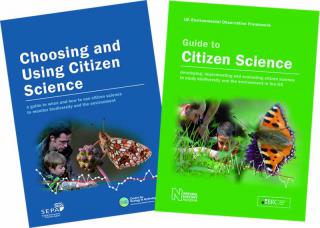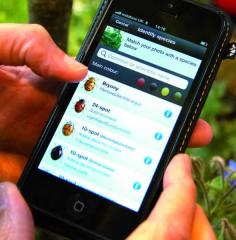Citizen Science
Citizen science can broadly be defined as the involvement of volunteers in science. BRC and the volunteer schemes have worked together to gather and analyse wildlife observations for 50 years providing evidence to underpin science, policy and practical conservation. During 2007, volunteer observers for biodiversity surveillance in the UK were estimated to contribute time in-kind worth more than £20 million. Combined with experience from other CEH-led citizen science environmental monitoring, CEH is becoming established as a leader in citizen science.
A UK-Environmental Observation Framework project critically reviewed citizen science practice and highlighted lessons learnt, the requirements of data users, and also reviewed the potential benefits of new technologies. CEH acknowledged the importance of sharing good practice and produced a guide on the practical implementation of the review. More recently the “Choosing and Using Citizen Science” guide has been developed by CEH in collaboration with SEPA.
Conker tree science
Photo: Susie Pocock.
The Conker Tree Science project engaged over 8,000 people. People were invited to report the occurrence of the horse chestnut leafminer (Cameraria ohridella). The project enhanced understanding of the invasion dynamics of this moth, the associated parasitoids and the value of citizen science.
Guides to citizen science
Picture: CEH.
‘Choosing and using citizen science’ and ‘Guide to citizen science’ are two documents produced from projects reviewing the breadth and utility of citizen science for environmental research and monitoring. Both recognize the value of citizen science as an approach for undertaking environmental studies and provide a critical framework for developing such initiatives.
Smartphone apps
Photo: Heather Lowther, CEH.
The development of a smartphone apps for recording ladybirds has enabled the UK Ladybird Survey to attract new recorders. More than 9,000 records have been submitted in its first year. The newly released iRecord Butterflies app received more than 4,000 records within a month of being available. Verification and validation methods within iRecord provide quality assurance and onwards flow of data.
Data quality is often a major challenge for citizen science approaches. To ensure the usefulness of data collected by volunteers, a variety of quality assurance methods are used. Automated checks, developed by schemes and societies, when coupled with expert verification play a critical role in ensuring the accuracy of biological records. iRecord provides an example of this approach. Development of novel methods will undoubtedly encourage further interest in citizen science and help to recruit and train new generations of recorders.


